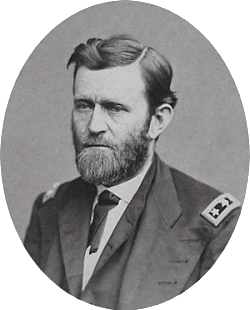How so?
He appoints Jews to public offices and makes them his advisers. When Jews are oppressed in Russia and Romania, he goes out of his way to defend them. He goes to the dedication of a synagogue and sits for three hours in the Washington heat -- that's real penance!
Would he have been as supportive of the Jews if he hadn't felt guilty about General Orders No. 11?
It's hard to know. One of the things you have to understand about Grant is that he also treats Native Americans and African-Americans as individuals. His fellow generals would have annihilated the American Indians, but he appoints one as his adviser on Native American affairs. He really believed African-Americans should have rights. It was only after his Presidency that Reconstruction was undone and the Jim Crow laws went into effect. His policy toward Jews was all of a piece with his evolving sense of how individuals of different sorts should be treated. You have to move a whole century forward to see that much interest again in minority groups.
And now it's 150 years later. What can we still learn from this?
The story of Grant shows how leaders can learn from their mistakes and grow. We forget sometimes that people can change. And learning about this incident reminds us how wars entail what we today call human rights violations. One or another group has been persecuted during the wars -- the Germans during World War I, the Japanese during World War II, the Jews during the Civil War. Learning from the past can help us prevent these sorts of incidents in the future.
And from the point of view of the Jewish community -- this is an episode from the past that most Jews don't know about. On one hand, it shows that even in America, Jews can be expelled. But on the other hand, the order was rapidly countermanded. You don't see that sort of happy ending in Spain or Germany.






